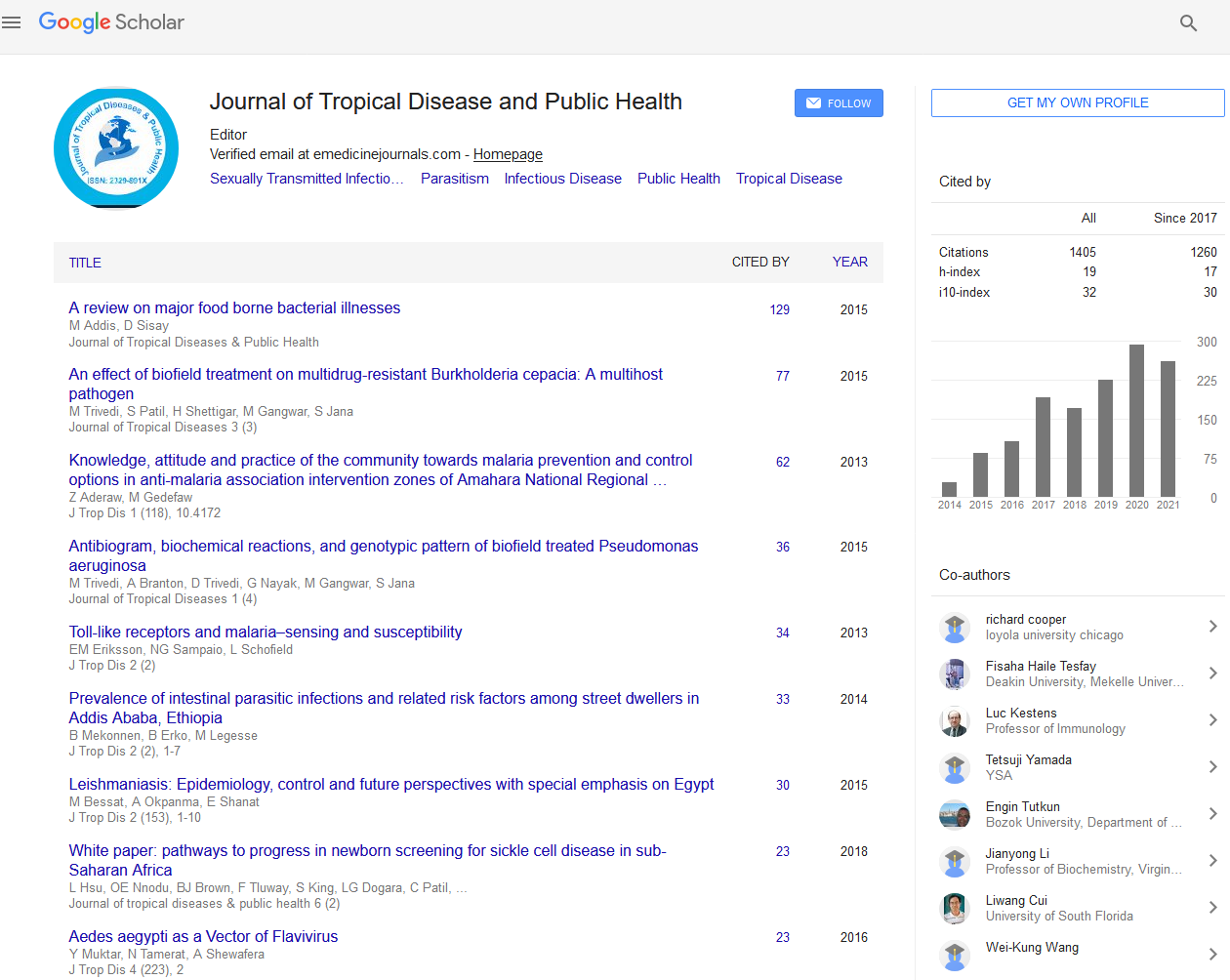Indexed In
- Open J Gate
- Academic Keys
- ResearchBible
- China National Knowledge Infrastructure (CNKI)
- Centre for Agriculture and Biosciences International (CABI)
- RefSeek
- Hamdard University
- EBSCO A-Z
- OCLC- WorldCat
- CABI full text
- Publons
- Geneva Foundation for Medical Education and Research
- Google Scholar
Useful Links
Share This Page
Journal Flyer

Open Access Journals
- Agri and Aquaculture
- Biochemistry
- Bioinformatics & Systems Biology
- Business & Management
- Chemistry
- Clinical Sciences
- Engineering
- Food & Nutrition
- General Science
- Genetics & Molecular Biology
- Immunology & Microbiology
- Medical Sciences
- Neuroscience & Psychology
- Nursing & Health Care
- Pharmaceutical Sciences
Abstract
Studies on Knowledge, Attitude and Practices in Malaria Endemic Tribal Areas of Bihar and Jharkhand, India
Knowledge, attitude and practices (KAP) in tribal and rural population of four malaria endemic districts in Bihar and Jharkhand states in respect of malaria were studied. The results of this study showed that most of the respondents (92.5%) were known to malaria and aware of the common symptoms of malaria (82.4%) like fever, shivering and cold etc. However, considerable (28.4%) number was not aware that malaria is caused by mosquito bite. Knowledge about resting sites of malaria vectors was good as 48.8% respondents reported cattle sheds, 32.4% respondents reported human dwellings and 15% damp dark places. Most of the respondents were not aware of mosquito breeding associated with clean water bodies.
The attitude of respondents towards vector control programme was very poor as 67.8% respondents lost faith in DDT spraying because of its ineffectiveness in controlling the mosquito nuisance. More than two third of respondents were regular user of treated bed nets and it was considered the best option for protection from malaria and mosquito bite. Proper health education is warranted to increase community knowledge and awareness in local language at the individual and community level to promote malaria prevention, to enhance the IRS coverage and use of bed nets for successful malaria control. Insecticide spray may be more acceptable to the communities, if appropriate and more effective insecticide is being used.


